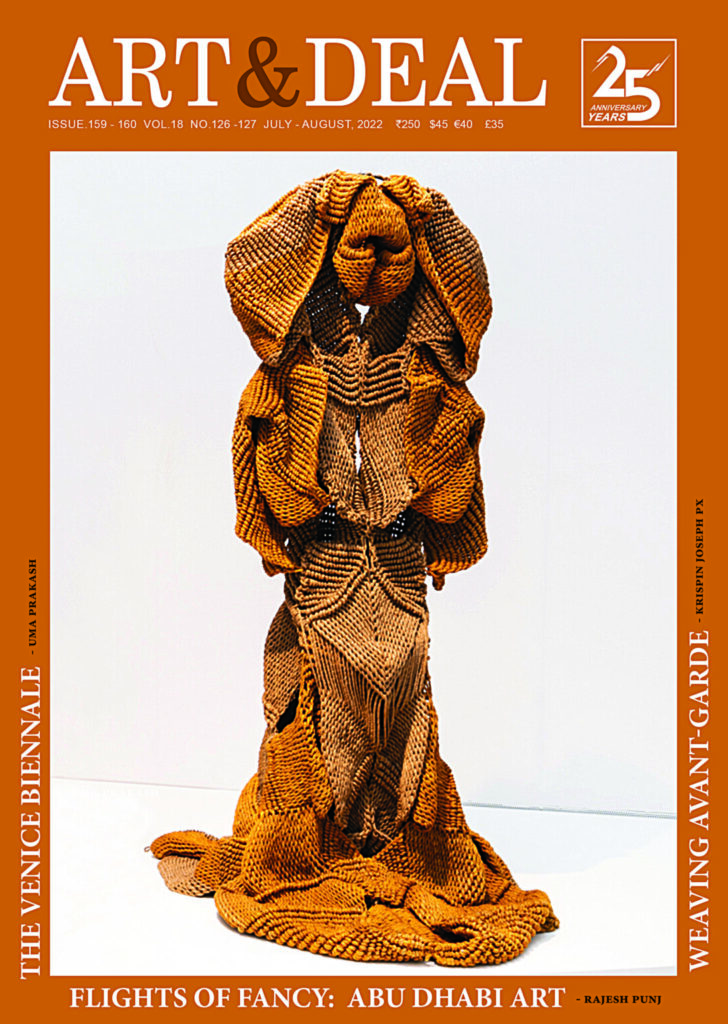Redeeming Tradition :
Velu Viswanathan’s Yantric Interplay
Dr. Ashrafi s Bhagat
Neo-Tantric art integrated, translated, synthesized or imitated using contemporary materials/vocabulary to assert itself as an autonomous sign. In its deployment within the existing contingencies, it moderated as a modern idiom, remaining secular whereby it was emptied of its religious/ritualistic content, and its formalistic elements found relevance through artists engagement with it.
“Art is a selective re-creation of reality according to an artist’s metaphysical valuejudgments. An artist recreates those aspects of reality which represent his fundamental view of man’s nature.” Ayn Rand Abstraction as a genre in Post-Independence India, particularly in the 1950s, could not be established as a conscious self-innovative notion since the idea came from the West. In adopting abstraction as a visual language, there were charges of derivativeness for artists leading to questions of their identity unresolved. ‘Selfhood and subjectivity of Indian artists’, said Geeta Kapur ‘required acts of exegesis – often via the nation’. Canonical Tantric art was, hence, politicized within the national ambit as Neo-Tantric Movement following the publication of Ajit Mookerjee’s book on Tantra Art in 1966.
The abstract character of this metaphysical art fundamentally served well and in its contemporaeinty, was at par with the West. Abstraction, now, could be fitted into the national agenda and identity resolved by linking it to religion, symbols and myths. The sanction from the international community largely was due to the newly aroused interest from a large number of American artists in oriental philosophy like zen, yoga and a possibility of creative exploration with calligraphic characters. Mark Rothko, Mark Tobey, among many others, appropriated the spiritual dimension of these varied philosophy in their paintings and when Neo-Tantricism made its international debut it was accepted as part of an orientalizing philosophy therefore gaining mileage out of it by getting absorbed within the Modern. The nation, hence, became a site of resistance for negating dominant Euro- American influences and gave added impetus to the reconfiguration of an esoteric ritual worship in Tantricism.

